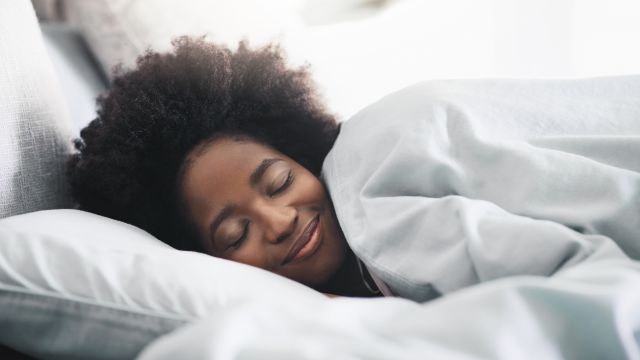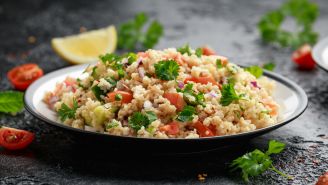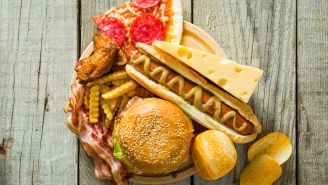Updated on February 3, 2023.
The food we put on our plates affects our risk of developing a wide range of chronic illnesses, including heart disease, diabetes, and cancer. It can also influence our sleep. Research tells us that making healthier food choices—and perhaps including certain foods in our diet—may help improve the quality and duration of our rest.
Sleep and certain nutrients
The nutritional content of our meals can help or hinder our bedtime. A 2020 review published in the journal Nutrients, for example, looked at 32 studies examining the relationship between diet and sleep. Across the studies, researchers found that foods rich in tryptophan, melatonin, and antioxidants were associated with better rest. You can find these in the following foods:
- Tryptophan is the building block your body uses to produce serotonin, a hormone that helps regulate functions such as mood, digestion, and sleep. If you’re looking for foods with tryptophan, seek out pineapples, salmon, turkey, and eggs.
- Melatonin is a hormone that your body naturally produces in response to darkness, but it can also be found in plants, animals, and dietary supplements. Foods that are good sources of melatonin include cherries, fish, nuts, and eggs.
- Antioxidants, sometimes referred to as phytonutrients or phytochemicals, are substances that can help delay or prevent damage to our cells. Antioxidants can be found in fruits and vegetables, such as carrots, broccoli, turnips, and kale.
The researchers also found a link between high-carbohydrate diets and good sleep. But in general, the types of carbohydrates you eat matters. Those that come from processed foods like instant noodles, sweets, and soda have been linked with poorer sleep quality. To help optimize your sleep, focus on carbohydrates from unrefined, unprocessed foods like whole grains and vegetables.
Sleep and the timing of meals
When you choose to eat can play a role in sleep, as well. A 2022 review published in Frontiers in Public Health reported that eating carbohydrate-heavy meals close to bedtime can disrupt sleep. However, study authors also found that eating these high-glycemic index (GI) meals about four hours before bedtime helped people fall asleep faster.
The bottom line: Try to give your body at least two to three hours to digest a high carbohydrate meal before heading to bed.
Ultimately, the list for helpful sleep aid foods goes on and on. But it helps to eat enough fiber, legumes, whole grains, nuts, and produce.







